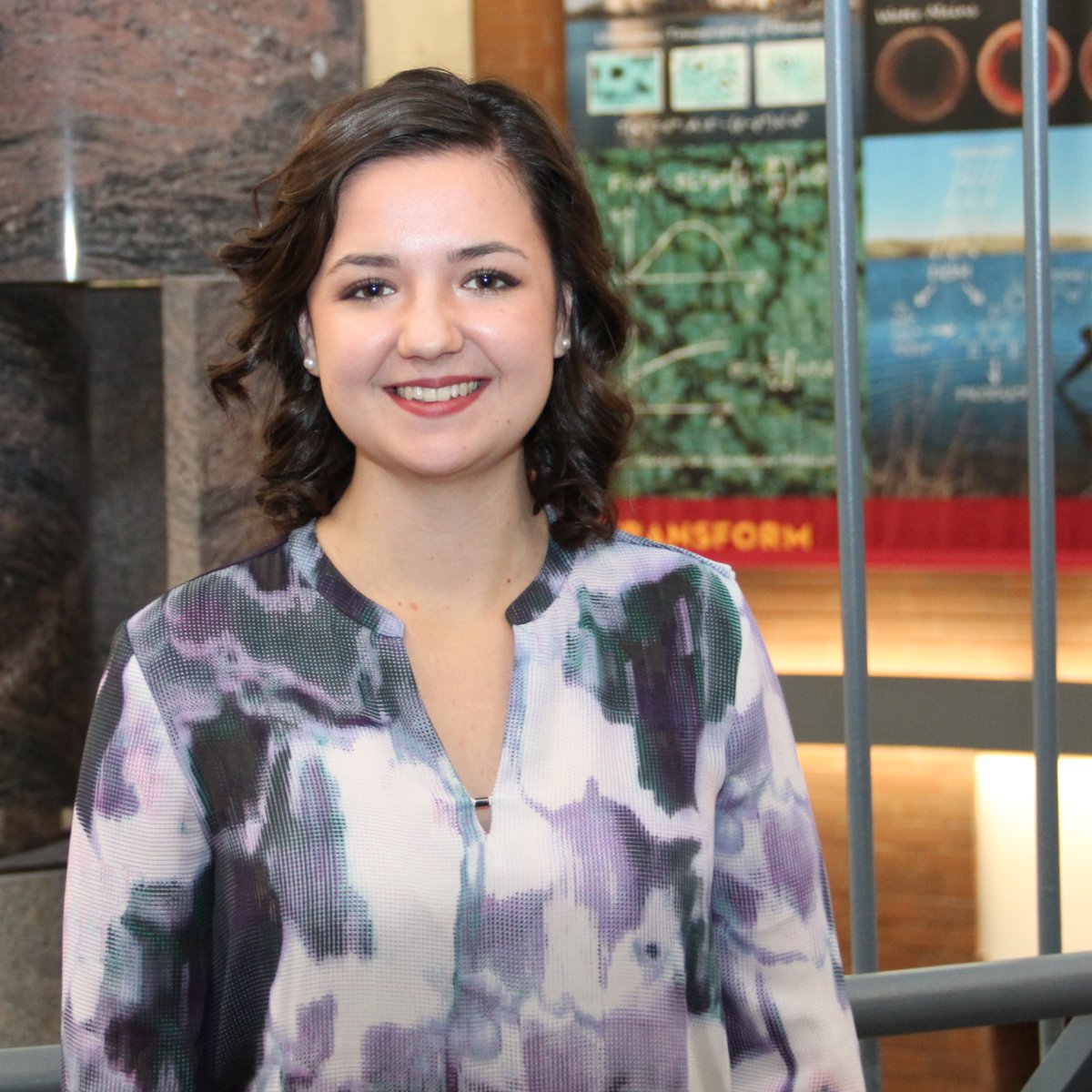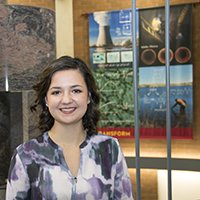Preparing a Global Work Force - Mariah Dooley

Several future-looking visions for engineering have targeted the year 2025, or even 2020, which is now only two years away. Although there are a variety of views about what skills engineers will need in the future, there is wide agreement about one needed skill: the ability to work in a globally connected marketplace.
Engineers of tomorrow will be asked to solve problems with an awareness of global impacts. They will be expected to deliver solutions that are effective for a broad spectrum of people and cultures. Their methods and tools will be impacted by global availability and competition. To solve global problems and deliver global solutions, engineers will need to understand cultural differences and how those differences affect their work. It will be helpful to understand some limitations that can arise from a US-centric viewpoint.
In this issue we share perspectives of two students with global experience. Mariah Dooley, from Sioux Falls, South Dakota, has travelled, studied, and worked in Spanish-speaking countries. Edwin Jarquin Martinez earned an architecture degree in his native Nicaragua. He came to the University of Minnesota to earn his second degree in civil engineering.
See also Edwin Jarquin Martinez's story
Mariah Dooley, BCE and Spanish Studies, 2018

MARIAH DOOLEY grew up in Sioux Falls, South Dakota, where only about 4% of the population speaks Spanish at home (StatisticalAtlas.com), yet somehow Dooley caught a passion for studying Spanish language and culture. She has nurtured that interest and is now completing a double major in civil engineering and Spanish studies. At UMN, Dooley has taken advantage of programs that are preparing her to be part of a global workforce.
“Working on a project in Nicaragua, I learned how important it is to really understand the problem and who it affects before proposing a solution. In my future career, I will strive to ensure that the design I propose meets the client’s needs and that it’s sustainable.”
Study Abroad
As a Spanish major, Dooley spent the summer after her freshman year studying linguistics, literature, and culture in Venezuela through a UMN study abroad program. She also took an ecology class in Spanish, in which the students went on field trips to the surrounding area to identify plants and appreciate the incredible biodiversity found in the Andes montane forests. “Living and learning in a Spanish speaking country really strengthened my language skills and made me realize how much I want to incorporate Spanish in my work and everyday life, even when I’m back in the States.”
Global Seminars
Dooley traveled to Nicaragua with a CSE Global Seminars course. In addition to the three-week course, Dooley stayed and worked on her own, the extended stay made possible by an award she received as a prize in the Acara Challenge and a scholarship from the College of Liberal Arts.
Global Seminars are led by CSE faculty. Students travel abroad to explore technical topics and global communities. The summer 2017 course in Nicaragua, “Design for Sustainable Development,” was conducted in partnership with EOS International, an organization that provides under-served communities in Nicaragua with low-cost appropriate technologies that generate income, improve health, and preserve the environment. The course aims to introduce students to engineering and social entrepreneurial aspects of rural development.
Acara
Another program, Acara, is for students interested in learning about and developing innovative solutions to the world’s Grand Challenges: the tough, seemingly unsolvable problems facing humanity (e.g., food insecurity, lack of access to clean water and energy, improper sanitation). Acara offers courses, study abroad programs, fellowships, and competitions.
Dooley and her Acara Challenge partner, Marah Cuadrado Labey from the Carlson School of Management, developed a plan to install centralized solar charging stations, which would charge mid-sized, portable batteries to supply electricity to households in rural communities of Nicaragua. Theirteam, named Luminaria, won the Silver prize in the 2017 Acara Challenge. Dooley’s award paid for her housing and supplies and allowed her to stay in Nicaragua after the Global Seminar course was completed.
“Luminaria aims to bring energy to families in rural villages of Nicaragua, in a clean way. During the Global Seminar we learned about sustainable development in Nicaragua and met various entrepreneurs in the area who are promoting sustainable development in their community. After the class, I began work on starting a pilot phase for Luminaria. As an outsider, I didn’t even know where to buy supplies. Luckily, the staff at EOS were a great resource in navigating the area and getting necessary materials and information. I did a lot of interviews with potential clients about which technologies they were currently using and about what they could afford. After we had that information, we installed a solar panel for a family that had never had electricity.
“I helped install the wiring in the house while one of my co-workers installed the solar panel on the roof, and we got it working in a matter of hours. Seeing how that impacted the family was really meaningful. The face-to-face interactions with the families added a lot of value to the work. I saw how my work affected people and was encouraged to do more work in communities where better infrastructure is needed.”
“I saw how my work affected people and was encouraged to do more work in communities where better infrastructure is needed.”
Spanish Language Here at Home
Dooley is back in the US, but she has not abandoned her global learning. She continues to seek outlets where she can use her knowledge of Spanish language and culture. Dooley volunteered at a Spanish immersion after-school program where she taught a science class in Spanish for 1st – 3rd graders.
Last year, Dooley worked with a group of students preparing to go to Guatemala with Engineers Without Borders. On that project, Dooley used her language skills by translating Skype calls between the UMN students and the community leaders in Guatemala. That experience helped to expand her engineering vocabulary in Spanish.
Dooley is currently interning at IDOM, an international architecture and engineering consulting firm. She has been there for about a year and a half and has worked on a variety of projects. She has been able to use her Spanish at work in a variety of ways, such as teaching a Spanish class to her co-workers and translating documents from Spain where the company is headquartered.
“I really enjoy working at IDOM. During the first couple months of my internship, I mainly worked on preparing inspection reports and editing project specifications. That wasn’t what I had been expecting to do, but that was the work that needed to be done. I reviewed notes and measurements that one of our engineers had recorded while conducting a routine inspection, and then synthesized the information in a report which was submitted to the client. The project introduced me to how engineering consulting works: from the first steps of submitting a project proposal to the end results of presenting the design to the client. Most recently, I have been working on writing a program that analyzes the stresses in jib cranes which are used in industrial settings. That project draws on the computer programming skills I learned in Professor Barnes’ Computer Applications class. It’s fun to be able to apply what I’ve learned in CEGE and to continue learning in the workplace.”
“I like that as a civil engineer, I design based on geographic factors, that the things I design have to fit on the earth in a specific environment.”